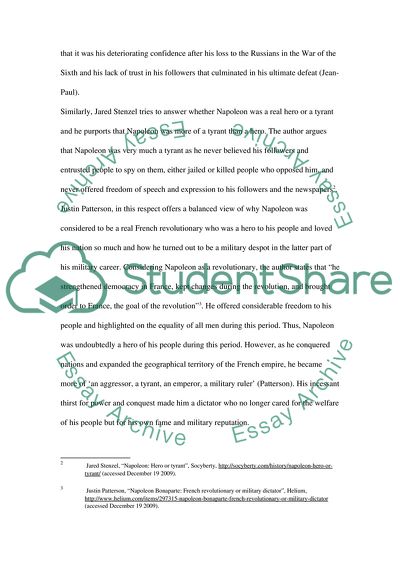Cite this document
(“Napoleon Essay Example | Topics and Well Written Essays - 1250 words”, n.d.)
Retrieved from https://studentshare.org/miscellaneous/1560930-napoleon
Retrieved from https://studentshare.org/miscellaneous/1560930-napoleon
(Napoleon Essay Example | Topics and Well Written Essays - 1250 Words)
https://studentshare.org/miscellaneous/1560930-napoleon.
https://studentshare.org/miscellaneous/1560930-napoleon.
“Napoleon Essay Example | Topics and Well Written Essays - 1250 Words”, n.d. https://studentshare.org/miscellaneous/1560930-napoleon.


